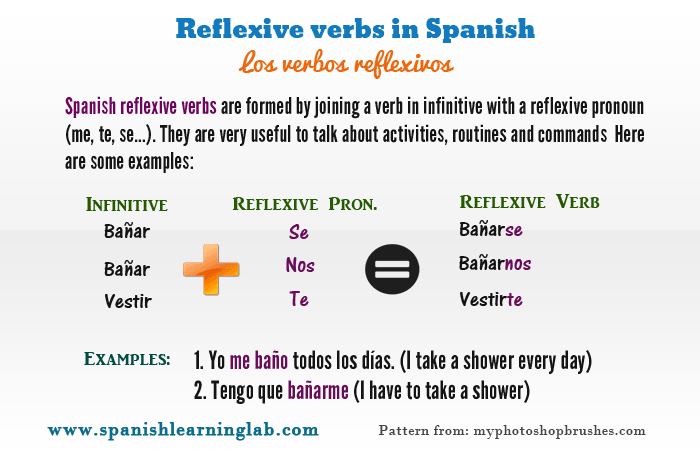
Mastering Reflexive Verbs: A Game-Focused Reflexive Verb List Part 4 Writing Guide
In the journey of mastering a new language, the intricate world of verbs can present both challenges and opportunities. Reflexive verbs, in particular, deserve special attention due to their unique structure and usage. They play an integral role in languages like Spanish, where the reflexive pronoun indicates that the subject of the verb is performing the action on themselves. Whether you’re a language enthusiast, a student, or an educator, understanding and mastering reflexive verbs can significantly enhance your communication skills. This guide will focus on providing insights and tips for effectively learning and using reflexive verbs, especially using a game-focused approach.
Understanding Reflexive Verbs
Reflexive verbs are verbs that include a reflexive pronoun, typically “me,” “te,” “se,” “nos,” or “os” in Spanish, depending on the subject of the sentence. These pronouns express actions performed on oneself. For example, “Yo me lavo” translates to “I wash myself.” It’s essential to note that the reflexive form of a verb contains the pronoun attached to it, indicating the action is reciprocal.
In a scenario with two verbs—one conjugated and the other in the infinitive form—the reflexive pronoun can either precede the conjugated verb or be attached to the infinitive. For instance, “Me quiero mirar” translates to “I want to look at myself.” This flexibility in placement offers learners an engaging way to experiment with sentence construction.
The Importance of Practice
To master reflexive verbs, continuous practice is key. Engaging with these verbs through games can provide an effective and enjoyable learning experience. Here’s how you can incorporate game-based learning into your practice.
-
Flashcard Games: Create flashcards with different reflexive verbs on one side and their meanings or usages on the other. You can play a matching game where you pair verbs with their appropriate reflexive pronouns. This will help reinforce your understanding and improve retention.
-
Role-Playing: Set up role-playing scenarios where participants must use reflexive verbs in context. For example, simulating a morning routine that involves actions like brushing teeth (“Me cepillo los dientes”) or getting dressed (“Me visto”) can be a fun and interactive way to learn.
-
Online Quizzes: Many websites offer interactive quizzes focusing on reflexive verbs. These quizzes often provide instant feedback, allowing you to identify areas for improvement and track your progress over time.
-
Board Games: Adapt popular board games like “Jeopardy” or “Scrabble” to include reflexive verbs. For instance, in a modified “Scrabble,” players could earn extra points for using reflexive verbs correctly in sentences.
-
Pictionary or Charades: Play drawing or acting games where players must illustrate or act out reflexive verbs. This not only encourages creativity but also helps in visual learning of actions.
Writing Exercises
Incorporating writing exercises into your study routine can further enhance your understanding of reflexive verbs. Here are a few activities you could try:
-
Daily Journal: Write a short daily entry describing your morning routine using reflexive verbs. For example, “Esta mañana, me desperté a las siete. Luego, me duché y me vestí.” (This morning, I woke up at seven. Then, I showered and got dressed.)
-
Sentence Creation: Challenge yourself to create sentences using different reflexive verbs in various tenses. This exercise helps reinforce your understanding of conjugation as well.
-
Peer Review Sessions: Partner with a friend or language partner to exchange writings. Provide feedback on each other’s use of reflexive verbs, correcting any errors and discussing usage techniques.
Conclusion
Mastering reflexive verbs is a journey that involves understanding their unique structure, engaging in consistent practice, and exploring various learning methods. By incorporating game-focused activities, you can make the learning process both fun and effective. Remember, the key to mastering any aspect of a new language is patience and persistence, so keep practicing and enjoy the experience of learning reflexive verbs!
